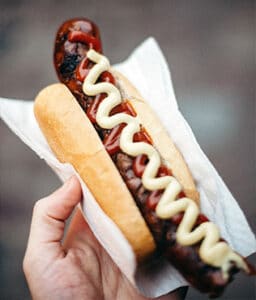Sources of protein if we do not eat meat
This question is relevant for those who follow their diet and really try to get enough protein per day. This applies not only to vegetarians, vegans or freshmen, but also to those who rarely eat meat. The amount of protein ingested in a vegetarian and vegan diet is only slightly lower than in carnivores, and it is sufficient to meet the daily protein needs of any person, including athletes, provided that a variety of plant protein products are used.
The main product groups that could replace meat and provide the necessary daily nutrients are cereals, legumes and nuts, seeds, as well as dairy products, eggs, seafood and soy.
Cereals
When using cereals, it should be remembered that they contain not only protein, but also a lot carbohydrates. The most protein-rich cereals are (amount of protein 100g):
Quinoa 14g
Wholemeal pasta, etc. 13g
Prose 12g
Buckwheat 12g
Oatmeal 11g
Different groats 11g
Wholemeal bread 7-13g
Brown rice 9g
These products not only give strength and energy, but also provide our body with a variety of minerals and vitamins. Cereals help the metabolism to run faster, do not cause sharp fluctuations in sugar, as well as create a feeling of satiety and are easily processed.
Legumes
Legumes are the closest in nutritional value to meat, both with their own essential amino acids composition (especially with lysine, which plays an important role in the growth of the body, in the process of tissue formation), as well as minerals (phosphorus, calcium, magnesium, potassium, iron) and vitamins. In terms of nutritional value, 100g of legumes contains between 21g - 35g of protein.
The most protein-rich legumes are beans. The most protein is in soybeans, which seem to be available in most eco-stores. Peas, field beans, various beans and lentils are also rich in protein. Because legumes are high in fiber, they are harder to digest and it should be remembered that the nutrients in them are only partially absorbed by the body (eg protein only around 70%). The ideal option is to combine cereals with vegetables.
Nuts and seeds
Although nuts and seeds are high in fat, they are also very rich in protein (100g is 15g - 25g of protein). However, in order not to fall into the "calorie trap" of nuts, they can be eaten very little - it is desirable to add to a food to enhance its taste and give it crispiness. It is recommended to eat a small handful (about 10-20) of nuts a day. If you start eating them out of control, you will have to increase physical activity, because nuts are rich not only in protein, but also in calories.
The most valuable nuts are: almonds, hazelnuts, pecans, Brazil and cashew nuts, peanuts
The most valuable seeds are: sesame, linseed, sunflower, hemp, chia seeds. Seeds are also usually added to food or minced along with fruits or vegetables in cocktails.
Milk and eggs
Animal protein - dairy products and eggs. From dairy products, I recommend using skimmed milk cheese, cheese, natural yoghurts, milk power, sour cream. However, the most valuable of these are skimmed curd and milk strength, as they contain very little fat. And, of course, now and then we also eat eggs - both as omelets and boiled.
For cheese - read the labels - what percentage of fat is in the cheese you choose. I usually try to use 10% fat - not because fatty cheeses are bad, but because I like a lot of cheese and a lot of fatty cheese
Fish and seafood
If we do not eat meat, we may eat fish, which I think is much more valuable than meat, because it contains unsaturated fatty acids, is quickly processed, provides our body with valuable vitamins and minerals. In principle, eating fish can maintain good health, especially for women. In addition, this is a very good source of protein, which is especially important in the diet of athletes.
There are also soy products: soy, tofu cheese, soy noodles, etc. I have tried these, but, to be honest, I don't eat them every day. In any case, I stick to the idea that “everything that grows on the ground, comes from the sea or from herbivores (dairy products) is healthy and good for our health!
Share this article
Follow me on Facebook
I recommend reading these articles as well

Stress - how does it affect our body and mind?
Stress can affect our bodies, thoughts, feelings and behaviour. Being able to recognise the common symptoms of stress can help to manage it. That's what this article is about.

Strength Training - 14 Proven Benefits
Strength training is not just about lifting weights in the gym. You can just as well train with your body weight, resistance rubbers, free weights or even household items.

An unhealthy diet shortens life more than smoking!
One in five of us dies prematurely because of our unhealthy eating habits.

How to find time for cooking and exercise?
How to prioritise your health, organise your schedule and find time for both cooking and workouts?

